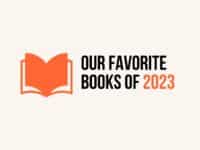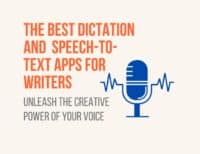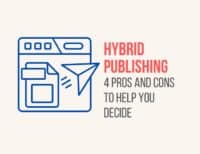One of the single most powerful things you can do to improve your writing in the New Year has nothing to do with writing itself.

I’m a book coach who specializes in helping writers who are serious about getting published, which means that I approach the work with more tough love than most writers are used to. I have to do this, because there are a lot of writers out there producing a lot of books, which means that if you want to attract agents, editors or readers, you have to not only write a killer good book, you have to approach the work with a strategic mindset.
Writers Need to Think Like Author Entrepreneurs
Writers tend to balk at this. The reason they write is (usually) that they are called to tell stories, or to share their ideas with the world, and there is nothing they enjoy more than an afternoon lost in words. I know, because I am a writer, too, and I feel that same satisfaction and that same joy.
But here’s the thing I have learned in helping other writers reach their readers: it’s usually not enough to write well. For the .01%, maybe, but guess what? That’s probably not you and it’s certainly not me. The rest of us have to think strategically about bringing our work out into the world, which means that we have to think like a startup entrepreneur looking to break into a crowded marketplace.
The way to do this is to tweak your intention. We don’t do ourselves any favors by thinking small. Yes, of course, there may be small steps you need to take in order to build your skills, or carve out the time you need to write. But when it comes to your intention, think big.
This New Year, Think Big
Start believing that you are writing in order to reach readers.
Start believing that you have something worth saying.
Start giving yourself permission to think about how your words might become a book and how your book might exist in the world.
Once you make this shift, you can start looking at your writing with the same kind of tough love I bring to my clients. You can start thinking like an author entrepreneur.
These Questions Will Transform Your Writing for the New Year
Below are seven key questions to help you on your way.
- Story Basics. What’s your point? Every single book, from a children’s book to an epic historic fantasy to a self help book by a national expert must have one and it must be crystal clear.
- Audience. Who Will care? You can’t say something vague like, “Moms of young kids,” or “People who liked Harry Potter.” You have to know—not only who they are, but what keeps them up at night—so that you can give them exactly what they need.
- Competition. What else is out there? It’s one of the first questions agents and editors ask, so you need to know, too – what other books like yours are doing well, why, and what yours has to offer that is different.
- Story Structure. How will the product look and feel? Entrepreneurs spend a lot of time thinking about the way we will interact with their products. Think about the way Apple packages their products, how they organize their stores. They want to delight their customers. Writers do this through the shape and structure of their work.
- Objective. How will you measure success? Why are you even doing this? What do you want to achieve? How will you know when you get there? Knowing will help you craft an executable plan, rather than just writing in the dark and hoping Oprah picks you for her next book club.
- Marketing. How will you reach your reader? You can’t pretend that Random House is going to figure this out for you. They will help—but they will be building on the foundation you lay down. You, after all, know your reader better than anyone else.
- Project Management. When will you launch? Don’t write blindly into the fog of “someday.” Make a plan. Determine how many pages you need to write each week or each month to get there. Determine what kind of help you may need—support from a group or a website like this one, expert advice—and get it.
Make this New Year the year you stop hoping and wishing about writing something other people will want to hear. Make this the year you do it.
What questions are you asking for your writing as we approach the New Year? Let us know in the comments.
PRACTICE
Spend fifteen minutes writing and brainstorming about your intention for your writing in the New Year. Be specific about what you plan to achieve. Include at least two tangible things you will do to accomplish your goals, and make them active. They could be habits you will adopt, skills you will build, practices you will continue, or courses you will invest in.
When you’re finished, share your New Year plan in the comments section. And if you post, please be sure to give feedback to your fellow writers.
Happy writing!







Howdy, I have the idea, storyline, characters, some completed chapters. My problem being I have material which is typed in different documents as well as parts which are handwritten. When it comes to putting it all together I find I have been so scattered that I don’t know where to start to make it come together. Any advice?
Thanks
Sunny
Well, first step sounds like it would be to get everything in one place. Commit to typing up some of that handwriting each day — or hire someone to do it. A high school kid would probably be thrilled with a little work like that. The next step would be to make sure you know exactly where your story is going. So you need to make a roadmap, an outline, some sort of plan. Then you can evaluate where your existing work fits into the whole. Look at the links in the post above for a free trial of the Author Accelerator program. It could be just the thing you need. The first five weeks have you working with an editor to plan out your story. Good luck!
I find going through it myself, hands on, helps get it settled in my head. Some things that seemed crucial when you wrote/typed/filed them months or years ago was part of the path to get to where you are now, but is no longer relevant to be included as the work has evolved. Or so it is with me.
Best thing was to step away from the big picture (once I’d taken a look) and focus on one step at a time – just getting through the data/information/snippets, a bit every day. The tortoise eventually gets to the finish line!
I’m also a big fan of different colors of sticky notes or flags – especially helpful when there’s more than one thought or category on a single sheet of paper!
I love sticky notes!!!
I have many dreams of stories, but practically none on paper. While I
do write for a living, getting a paycheck from a local newspaper, I’d
rather be making a living writing fiction.
The problem, besides just plain laziness, is that while the concepts
of my stories are interesting — at least to me — I am not confident
that I am a good enough writer yet to make them as interesting to other
people as they are to myself. My skill needs more development — so that
is the first goal for 2015, to develop my skill further and to do so by
participating more regularly in exercises like this one and, in doing
so, also become less lackadaisical about writing. Hopefully, every day.
My second goal for the year, in addition to developing my skill, is
to get a concise outline of at least one (maybe more) of my stories by year’s end. I have
found that outlines help me focus, and I’ve got many beginnings, some
endings but stumble in between.
Practice and develop writing skill and a story outline. That’s the minimum of what I want to accomplish in 2015.
These are great, do-able goals! I recommend the book Handling the Truth by Beth Kephart for learning emotional engagement. It’s about memoir specifically but the principles are the same for all writing.
That sounds like what I need to find is that “emotional engagement.” Thanks for the recommendation. I will definitely check it out.
You’re welcome!
Thanks, this is timely for a non-fiction project I’ve been dealing with for 15 years. Off and on, in and around life getting in the way, tried to give it up several times… but I’d look at the interview transcripts and the photographs I made for the book and get excited about it all over again.
Two years ago, I promised myself that I would either get serious or finally walk away (path, not the destination, and all that). So I did. I made a production calendar (doesn’t matter that the actual dates will change)… outlined a PR and marketing plan… identified people I might hire as an editor… set time frames for choices made on layout, color, fonts as well as text (I design my own books)… and made a list of who else I needed to interview for the content. And wasn’t that last part interesting…!
Identifying the “final round” of interviewees helped me solve a huge block that had me stumped for a long time – that of relevance of the information I’d collected up to that point. By moving to the next generation, a younger group of subjects, I’m now getting the counterpoint that the story needed. It’s becoming three-dimensional rather than flat. And all of THAT energized me yet again.
Life continues to intervene, but I’m taking steps about clearing away some hurdles… and staying with my plan. Persistence is key!
Nice! This is a great story! Keep up the good work!
For me, it’s all about the habit. So, this is my plan for 2015:
Two hours/day of work.
A completed first draft by the end of June of at least 200 pages or more.
Of those two hours, the first is purely brainstorming/planning and the second is dedicated writing. I know if I protect those two hours, I’ll make my writing goal.
You’ll make it EASILY! My first agent told me I could complete the book by writing 1/2 hour a day– and she was right. That was 8 books ago. With two hours, you will fly! Good luck!
Thanks Jennie, for the encouraging words. Luckily, I don’t have to contend with a day job at the moment. I have time to write, so I want to make the most of it!
Lucky you! That’s terrific!
I struggle with plot development. I plan on doing everything in my power to master a decent plot structure as well as understanding the fundamentals of each part of the plot. My first goal is to A.) Construct a detailed outline of a plot for my next story and B.) Understand the finer workings of the structure itself. This will also involve a lot of reading to find these elements and observing how the authors structured their stories.
My second goal is to get 500 words in on my novel draft a day after I have completed my first goal as well as completing writing prompts from this website religiously.
It sounds like you are ON it!
He he, why thank you!
I’m working on plot development and structure with my WIP also. Currently I’m reading K.M. Weiland’s book “Outlining You Novel,” and finding it very helpful. I’ve also read her other book “Structuring Your Novel” that helps with the three act structure. It sounds like you’re really dedicated to your novel, Lauren. Keep it up! 🙂
Thank you for this thought-provoking article. I’ll be watching for the February seminar.
You’re welcome. We look forward to it, too!
I have always struggled in getting my stories from beginning to end. The beginning and the end go smoothly, but the middle gets bogged down and the plot line goes kaput. To address this issue, I plan on starting to outline my work before I start so that I know how to get from point a to point b.
I also plan on writing more. Too many days I spend reading the works of other authors, and while they do have great books (Tolkien is amazing) I need to work towards putting MY stories on the shelf instead of picking someone else’s off that same shelf. To do this I will not only focus on my fifteen minute writing prompt, but also dedicate time everyday to my WIP.
Usually sagging middles are the result of an author failing to nail down EXACTLY what they want to say. Work on what POINT you want your story to make in the end. Then set up the plot to help you prove that point.
Helaine, I’ve been working on outlining my WIP too. The book I’m currently reading is “Outlining Your Novel” by K.M. Weiland, and I’m finding it extremely helpful. She also as a book I’ve read called “Structuring Your Novel” that helps with the three act structure model of a novel. I know what you mean about spending a lot of time reading and needing to dedicate more time to writing. I’m always trying to strike a balance with that. It’s easier to be a consumer rather than a producer, but it’s not nearly as rewarding. Keep up the good work! 🙂
If I can write 3 times a week this upcoming year. It’s an improvement. I do have a book in mind. Need to plan for that.
Ok, but WHEN will you write, WHERE, and WHAT. 3x a week could be sitting on a couch writing in a journal or it could be sitting at a coffee shop committing to 1000 words. Get specific — it will help you reach your goals.
You’re right Jennie. Can’t happen by just wishing.
Still working with the strategy. I’m thinking writing early mornings, working towards a bulk of stories, hand picking them for a blog post release. Jeff Goins told me about his three bucket system, which makes sense to me.
You can check it out: http://josuemolina.com/the-three-bucket-system/
Personal stories leading to faith and personal growth has been resonating a lot in my writing. So I’m trying to hone that.
Most stories are coming from a small journal — sharing my craft, financial, spiritual, and entrepreneurial struggles.
Oh, the life of a writer.
Thank you for this post, Jenny! It makes me want to set some goals. Here’s what I would love to see happen this upcoming year:
1.) Finish writing my novel and hand it over to the beta readers. (Oh my word! This would be so amazing! Moving beyond all the brainstorming to complete a solid draft worth letting others read is something that I’ve been working towards for almost a year.)
2.) Start a writing blog focused on encouraging other writers who–like myself–don’t have a grand degree or a whole lot of experience, but want to learn and become better writers.
3.) Learn. Learn. Learn more than ever. I want to read more books on writing and also watch the two DVD courses I have on writing. And of course, put what I’ve learned to practice.
4.) Learn about marketing and create a book launching strategy. Blah. Not looking forward to this one, but I know it’s essential, especially since I’m planning on self publishing. (I’m pretty clueless about this y’all. Any advice or resources you’d recommend?)
Yes, joy! See the Tim Grahl book I just recommended to Christopher, above. Also check out Dan Blank’s courses at WeGrowMedia. He specializes in helping writers reach readers. And of course you should consider my own Author Accelerator program. Try the free trial!
Thank you, Jennie! 🙂
2015 Writing Goals
⦁ Develop a daily writing habit
⦁ Take at least 1 writing course
⦁ Complete 14 Prompts workbook
⦁ Participate in Jill Jepsons online course
⦁ Write at least 1 publishable eBook MS
⦁ Define a concept, or a publisher before writing anything
⦁ Build up my web presence on my blog
⦁ Learn more about FB/Twitter/G+/WP — buy books if possible
⦁ Learn how to save time publishing to social media
This is ambitious! I like it! If you are not familiar with it, I recommend Tim Grahl’s book, Your First 1000 Copies to learn about building up web presence. It’s very smart….
Thank you for your feedback. I will start looking for the book you recommended.
Have a GREAT Holiday!
Good ideas. I’ve decided in 2015 to get more serious about this newish writing career and do a plan. That means a vision, mission, long term goals, short-term SMART objectives, and tasks. I’ll keep using the ROW80 site and people to ensure I stay on track.
These questions are really mind-blowing. I really like them. I think this is just what I needed to hear. Thank you, Jennie! I love your newsletter! Certainly will keep an eye out for the February webinar. =)